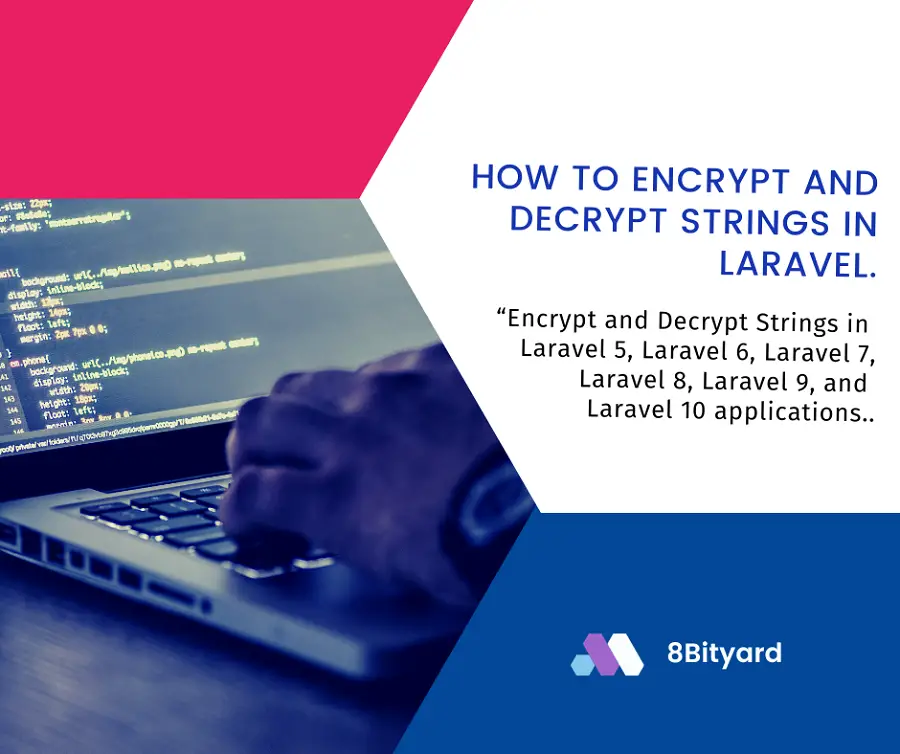Physical Address
304 North Cardinal St.
Dorchester Center, MA 02124
Physical Address
304 North Cardinal St.
Dorchester Center, MA 02124

In this tutorial, I will give you an example of “Encrypt and Decrypt Strings in Laravel”, so you can easily apply it to your Laravel 5, Laravel 6, Laravel 7, Laravel 8, Laravel 9, and Laravel 10 applications.
First, what we’re doing here, This is the example :


Encrypting and decrypting strings in Laravel, or any web application, can be necessary for several reasons, primarily related to security and data protection. Laravel, being a popular PHP framework, provides built-in support for encryption and decryption through the Laravel Cryptography package. Here are some common use cases for encrypting and decrypting strings in Laravel:
Laravel provides a straightforward way to encrypt and decrypt data using its encrypt and decrypt functions, which are based on the AES-256 encryption algorithm. Here’s how you can use them:
controller
<?php
namespace App\Http\Controllers;
use Illuminate\Http\Request;
use Crypt;
class EncryptDecryptStringExampleController extends Controller
{
public function encryptedData($data)
{
return Crypt::encrypt($data);
}
public function decryptedData($data)
{
return Crypt::decrypt($data);
}
}
routes
<?php
use Illuminate\Support\Facades\Route;
use App\Http\Controllers\EncryptDecryptStringExampleController;
Route::get('/encrypt/{data}',[EncryptDecryptStringExampleController::class,'encryptedData']);
Route::get('/decrypt/{data}',[EncryptDecryptStringExampleController::class,'decryptedData']);
Remember that while encryption can provide an extra layer of security, it’s not a substitute for good security practices. You should still follow best practices for authentication, authorization, and database security to ensure your application’s overall security. Additionally, encryption may have performance implications, so use it judiciously and only on data that truly requires it.
I hope that this article helped you learn how to Encrypt and Decrypt Strings in Laravel. You may also want to check out our guide on How to Encrypt Database Fields in Laravel.